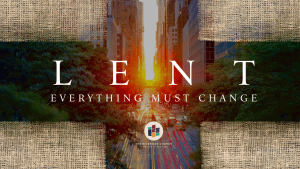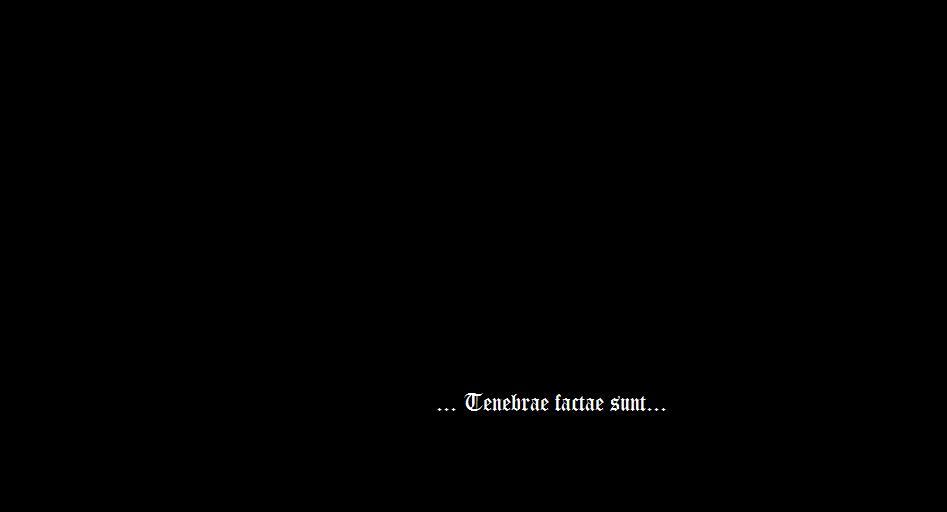Genesis 12:1-9
 Even if I had a blindfold on, I would know I was at home.
Even if I had a blindfold on, I would know I was at home.
There’s something unique about the air of the Hawaiian Islands, where I grew up. For one thing, the air smells…sweet. It’s a smell that’s a mixture of ocean and flowers that I have never smelled anywhere else.
And it’s hard to explain, but there’s a quality in the air that is soft. Maybe it’s because of the constant trade winds coming off the ocean, or the moisture that is always in the atmosphere, but stepping off the airplane at home feels like the air around you is giving you a hug.
And home sounds different, too. The sounds of birds and wind in the trees and ocean, along with the notes of a slack key guitar, those sounds tug at my heart because they are the soundtrack of home. I would know those smells and sounds, the feel of the air, anywhere, and their familiarity always settles over me like a soft blanket. The feeling of being home is a feeling of rightness, of belonging, of your feet solid underneath you, your foundation strong and familiar. For what would you ever trade that?
I bet you can think of something that reminds you of the feeling of home: a certain smell, or taste. The sound of someone’s voice, or a special kind of music.
And I bet Abram could, too.
We learn from the Genesis text that home for him was Haran, where he lived with his father’s camp—a boisterous collection of siblings and half-brothers and cousins, their wives and children and grandchildren, their tents pitched together, for safety in the desert. And the desert, though austere, had a sharp beauty to it. Sand dunes as far as you could see, the light playing tricks on your eyes. Beautiful plants and breathtaking rock formations appeared in places you never expected, and every once in awhile, a shock of green, an oasis. Abram lived in the dessert community with his wife Sarai. To their great and abiding grief, they did not have any children, but as the extended family swirled around them, full of love and life and activity, they never felt completely childless.
Every morning Sarai would walk with the other women to the well to fetch water, while Abram sat by the fire planning the day with the other men. And after breakfast they would gather their tools and fill their water bags and set off into the nearby hills. Abram and the other men would care for the needs of the animals—delivering lambs, nursing those that were sick, moving the flocks toward grass and water. And back at the camp, Sarai and the other women would watch the children and bake the bread and tend to the tasks of making a home. They’d share supplies and ideas, everyone pitching in to make sure the camp was well cared for.
And in the evening everyone would gather around the fire, animals secure for the night and all of them together, safe in their community. They would review the day and tell stories their parents told them when they were children sitting around the fire. They’d sing familiar songs and the notes would carry over the surrounding hills.
For Abram and Sarai, this was home: the flocks he tended, the life she’d built. It was the sharp smell of the campfire, the shouts of the children and the bustle of the community as it tended to its shared life. This was the place where they belonged, where the ground was strong and secure underneath their feet, where they knew others and were known by their community, where they knew who they were.
Home.
Until one day God showed up and told Abram it was time to pack up and leave, to go from the countryside he knew and loved, away from the network of family surrounding him, from the neighborhood where he’d walk and everyone would recognize him, to…well, he didn’t know where. And God didn’t say.
In fact, Abram didn’t know anything except the truth that if he had the courage to follow God’s direction, everything would change. God made promises to Abram, most significantly the promise of God’s presence. But as Abram looked out over uncertainty, he didn’t have the answers to any of his questions. How could he leave the easy camaraderie of the shepherds he worked with every day? What if he never saw his family again? And how could leaving—just setting out all alone to a place he didn’t know—how could that be even safe? In order to follow God’s call, to answer God’s invitation, Abram would have to change everything, and most of all the way he thought about home.
Today is the second Sunday in the season of Lent, forty days of reflection and repentance that lead to Easter. During these next few weeks we’re reading the stories in the Hebrew texts assigned in the lectionary and thinking about God’s constant invitation to humanity to change the way we look at the world. Change is hard for us because it challenges our assumptions and invades our comfortable delusions. Lent is the season to do this hard work, however, and guiding our deliberations today is a story that comes just a few chapters after the story we read last week, the story of God creating the world. In today’s story, God intervenes in the life of one man and one woman, Abram and Sarai, and asks them to leave their home. More than that, God asks them to change the way they think of home altogether, to begin the hard work of finding home, not in the outward trappings of life that we work so hard to build…but in God.
Our scripture lesson today begins with God telling Abram to pack up and leave, and it’s interesting to note that God doesn’t pull any punches here. God doesn’t say: “Let’s take a trip,” or “Come on, this will be a piece of cake!” No, God says go…from your country and your relatives and your community to a place that I will show you. Pack up everything you have, leave everything familiar behind you, and hit the road.
My biblical Hebrew is rusty at best, but even I can tell you that there’s something unusual in the original language of this little passage. When God speaks to Abram with the command “Go!” there are two words instead of one. In the Hebrew instead of just the word lek, to go, there is another word: lekha. Because of the grammatical structure of the sentence it’s difficult to know what the configuration means exactly, but a rabbi friend of mine told me this week that some scholars understand this to mean something like, “Go to yourself.” What exactly that means is also unknown, but the writer of this text obviously has included a layer of meaning beyond the physical command to move. When God talks to Abram here, it’s like God is saying: look inside. Be who you were created to be. Find the home you are longing for with me.
Well, that would be a change, wouldn’t it?
Everything would change for Abram and Sarai, and if we heard God’s words and applied them, everything would change for us, too. We live in a country where what we have often defines our worth, where we understand home by the walls that contain our stuff, and where we spend money we don’t have on things we don’t need to impress people we don’t like. This process of defining our lives—what feels firm and unmovable under our feet—by looking inward at who we are instead of outward at what we have, is exactly the adventure of finding home that God was inviting Abram and Sarai to embark on.
In fact, life with God seems to be a something of a journey all the time, always calling us out of the familiar into something new. Our entire biblical text has running through it the theme of journey: biblical patriarchs and matriarchs like Abram and Sarai; even Jesus setting his face toward Jerusalem and a cross; and the first Christians who left their homes to take the gospel message to new places. It seems that following God requires a life that is characterized by less dependence on the people, places, and things that we assemble around us and use to define us, and more by an inward focused posture dependent on the God who created us and who keeps calling us toward all the possibilities of who we were created to be.
There is a story of a man who once traveled from America to Poland to visit the great Rabbi Yisrael Meir Kagan, author of many famous codes of Jewish law. The man made the pilgrimage to meet the great thinker, and he was excited as, finally after a long journey, he knocked on Rabbi Kagan’s door and was greeted by an elderly, stooped gentleman who asked him to please enter. The man entered the house and looked around, a bit stunned. The rabbi’s house was totally empty, bare of furniture as if no one lived there. The room contained only the very basic, spare furnishings: one table, two chairs, a bookcase and a bed.
This was the home of a famous rabbi, so the man was confused. “Rabbi, may I ask a question?” said the man. “I don’t notice much of anything here in your home. Where are your things? Have you fallen on hard times?”
The rabbi, unaffected by his guest’s question, turned to the visitor. “And may I ask you a question, young man?”
“Certainly,” came the reply.
“Where is all your furniture?”
“I have a custom kitchen, an oak dining room table, and a beautiful bedroom set all at my house in New York,” said the man. “Do tourists generally take such possessions along in a moving van? I’m just passing through!”
The great rabbi gave his guest a gentle smile. “As for this world I, too, am just passing through,” said Kagan. “Then again, aren’t we all?”[1]
This Lent, everything must change. That means how we think about home must change, too. Like Abram, “[God] speaks to us where we are, as we are, living our self-satisfied existences, surrounded by all the securities upon which we build our lives. We know who we are and what we are, and what we know tends to please us. Of all the things in the world, we are most interested in those to which we can attach the possessive pronoun: my family, my home, my possessions, my life. We dwell in our private Harans…and we are content. God’s gospel shatters that contentment like a hammer blow on pottery. It tells of a world completely different from the one we live in: a family made up of brothers and sisters who do the will of God, where earth becomes like heaven.”[2]
Just think what would never have happened if Abram and Sarai didn’t have the courage to set out for somewhere new, to find their home in God? There would have been no Isaac, or Jacob, or Joseph. There would have been no Moses and no Exodus story; no promised land and prophetic voices; no young, unwed mother giving birth in a stable.
The truth is that we die a spiritual death when we limit just how far God can lead us and work in our lives. But if we make a home with God, we’ll be ready to go anytime, anywhere…ready to take on the adventure of our lives. And when everything changes, the possibilities are endless.
Amen.
[1] http://bhcbe.org/cpt_sermons/passing/
[2] Mayes, James L. “God Has Spoken: A Meditation on Genesis 12:1-4,” Interpretation 14, no. 4 (October 1960), p.420











